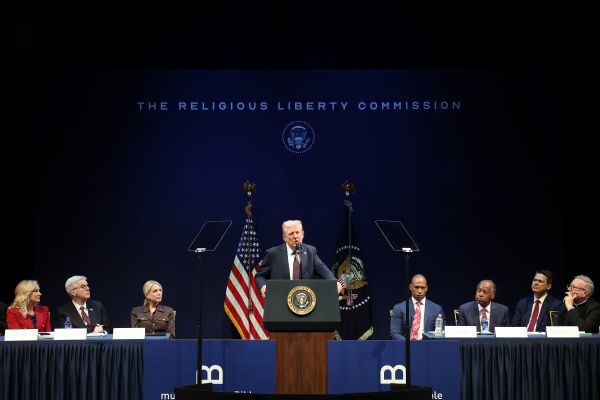Does 1 Timothy 2:12-15 prohibit women from teaching or having authority over men?

I used to believe that 1 Timothy 2:12 teaches: “I do not permit a woman to teach or to have authority over a man.” But taking this as a universal prohibition ignores that this letter addresses a specific local problem of false teachers deceiving women and that this passage has only one imperative, “let the women learn” (1 Timothy 2:11). Furthermore, the translation, “I do not permit a woman to teach or to have authority over a man,” is dubious for four reasons.
First, the Greek word the old NIV translated “to have authority, authentein, is best translated “to seize authority.” This word’s first occurrence clearly meaning “exercise authority” is three centuries later, circa AD 370, in Saint Basil, The Letters 69, line 45: “he [the bishop of Rome] may himself exercise full authority [authentēsai] in this matter, selecting men capable of enduring the hardships of a journey” ̣(Loeb Classical Library Saint Basil 2:40–43). The New Testament uses a different word for “exercise authority,” exousiazō. In Paul’s day authentein could mean either “to dominate” or, more commonly, twenty-one times, “to assume authority by seizing it.”
The King James translation, “usurp authority,” is, therefore, more accurate. The standard New Testament Dictionary defines this word “to assume a stance of independent authority.” The 2011 NIV corrected its translation to: “to assume authority.”
Second, Paul typically uses the conjunction that links “to teach” with “to seize authority” to convey a single idea. My “1 Tim 2.12 and the Use of οὐδέ [oude] to Combine Two Elements to Express a Single Idea,” NTS 54 (2008): 235–53 examines every use of oude by Paul. My “Οὐδέ [Oude] Combining Two Elements to Convey a Single Idea and 1 Timothy 2:12,” in Missing Voices: Broadening the Discussion on Men, Women, and Ministry, ed. Hilary Ritchie (Minneapolis: CBE International, 2014), 24–34 answers objections and illustrates this use of oude to combine two elements that contrast with something else introduced by alla. Consequently, Paul prohibits only women from seizing authority to teach. This does not restrict teaching by women with recognized authority. Indeed, Paul greets Priscilla, who instructed Apollos in this same city, in 2 Timothy 4:19.
Third, “I do not permit” is a misleading translation because this verb in Greek normally refers to something limited in time, not permanent. Furthermore, its grammatical form here rarely conveys a permanent prohibition. It usually focuses on presently ongoing permission or prohibition, so should be translated, “I am not permitting,” referring to the ongoing crisis of false teaching in Ephesus, not to a universal prohibition.
Fourth, if this verse permanently prohibits women from teaching, it contradicts the Bible’s many affirmations of women teaching.
God revealed even key portions of inspired Scripture through women, including the songs of Miriam (Exodus 15:21) and Deborah (Judges 5:2–31), Hannah’s prayer (1 Samuel 2:1–10), Abigail’s prophecy (1 Samuel 25:24–31), the “inspired utterance” of King Lemuel’s mother (Proverbs 31, see verse 1), Elizabeth’s blessing (Luke 1:25, 42–45), and Mary’s Magnificat (Luke 1: 46–55), the first Christian exposition of Scripture.
Thus, 1 Timothy 2:12 addresses a specific problem of deceived women in the church in Ephesus conveying false doctrine. It prohibits women in that church from seizing authority to teach a man. Women teaching with recognized teaching authority, like Priscilla, would not be seizing authority. Paul does not prohibit women everywhere or at all times from teaching or having authority over men.
1 Timothy 2:13–15 explains Paul’s restriction:
13 For Adam was formed first, then Eve was formed. 14 And Adam was not deceived, but the woman, being thoroughly deceived, fell into transgression. 15 But anyone will be saved through the birth of Jesus if they continue in faith, love and holiness with self-control.
Since woman was formed from man, she should respect man as her source, just as 1 Corinthians 11:3, 8 and 12 explain.
“Then Eve” is the first affirmation that God “formed” woman. This implies the equality of men and women.
If Adam heard the serpent’s words and believed them, he, too, was deceived. Nothing in Genesis says that Adam heard the serpent’s words. Adam “was with her” specifically at the tree (Genesis 3:6). His sin was direct disobedience.
“The woman who was thoroughly deceived [exapatētheisa, passive]” implies that the serpent, Satan, deceived her.
Neither “will be saved” nor “if they continue” is feminine, nor does either have a feminine pronoun as subject. Everything in this sentence applies equally well to all believers. “Anyone” likewise fits the shift from singular (“anyone will be saved”) to plural (“if they continue”).
“Save” (sōzō) in Paul’s letters always regards spiritual salvation, e.g. 1 Corinthians 15:2. “Save” fits the following conditions: “If they continue in faith, love and holiness.”
All three occurrences of “childbirth” in Greek literature prior to Paul refer to the birth of a child, none to the process of childbearing. “The childbirth” has an article. Fifty-five of the sixty-one articles in 1 Timothy are clearly individualizing. Only one is clearly generic. What childbirth saves? 1 Timothy 1:15 states, “Christ Jesus came into the world to save sinners” (1:15) and 3:16 affirms, “He appeared in the flesh.”
The problem with using 1 Timothy 2:12 to prohibit women from teaching or having authority over men isn’t just that it doesn’t clearly teach this. The crucial problem with excluding women from teaching and from having authority over men is that so many foundational principles of the Bible directly oppose this, including each of the following theological axioms from Paul that man and woman are equally:
- created in God’s image,
- given dominion over the earth,
- given the creation blessing,
- given the creation mandate,
- and are equally in Christ.
Mutual submission in the church entails the equality of men and women, as does
- mutual submission in marriage,
- the oneness of Christ’s body,
- the priesthood of all believers,
- liberty in Christ,
- the new creation,
- and inaugurated eschatology.
The Spirit gifts all believers for ministry.
The nature of church leadership as service applies equally to men and women.
Paul introduces his conclusion to how men and women should lead worship in prayer and prophecy in 1 Corinthians 11:11 with the word he consistently uses for “breaking off a discussion and emphasizing what is important” (BDAG 826); “to single out the main point ” (A. T. Robertson, A Grammar of the Greek New Testament in the Light of Historical Research [Nashville, TN: Broadman Press, 1934], 1187, citing Blass); “to conclude a discussion and emphasize that is essential” (BDF§449 p. 234). Consequently, 1 Corinthians 11:11 teaches specifically regarding leadership in worship: “The important point, however, is that woman is not separate from man, nor is man separate from woman in the Lord.” Galatians 3:28 similarly affirms, “there is no male-female division in Christ.” Paul’s wording and parallel passages show that this describes the church. He had just rebuked Peter for withdrawing from table fellowship with gentiles as contrary to the gospel. To prohibit all women from teaching and from having authority over men is surely even more contrary to the gospel and to our unity in Christ.
Philip B. Payne (Ph.D. The University of Cambridge) has taught New Testament in colleges of the University of Cambridge and has been a Visiting Professor of New Testament at Trinity Evangelical Theological Seminary, Gordon-Conwell Theological Seminary, Bethel Seminary, and Fuller Theological Seminary. He is well known for seminal articles on the parables of Jesus, women in the teachings of Paul, textual criticism, and Codex Vaticanus. His books include Man and Woman, One in Christ: An Exegetical and Theological Study of Paul’s Letters, Why Can’t Women Do That? Breaking Down the Reasons Churches Put Men in Charge, and (forthcoming April 4, 2023) The Bible vs. Biblical Womanhood: How God’s Word Consistently Affirms Gender Equality. He founded Linguist’s Software, which provides fonts and input systems for over 2600 languages, including the fonts used to publish the Nestle-Aland Novum Testamentum Graece 28th edition, the UBS The Greek New Testament, and HALOT (The Hebrew and Aramaic Lexicon of the Old Testament). He and his wife Nancy were missionaries in Japan. Their three children and six grandchildren all love the Lord.





















